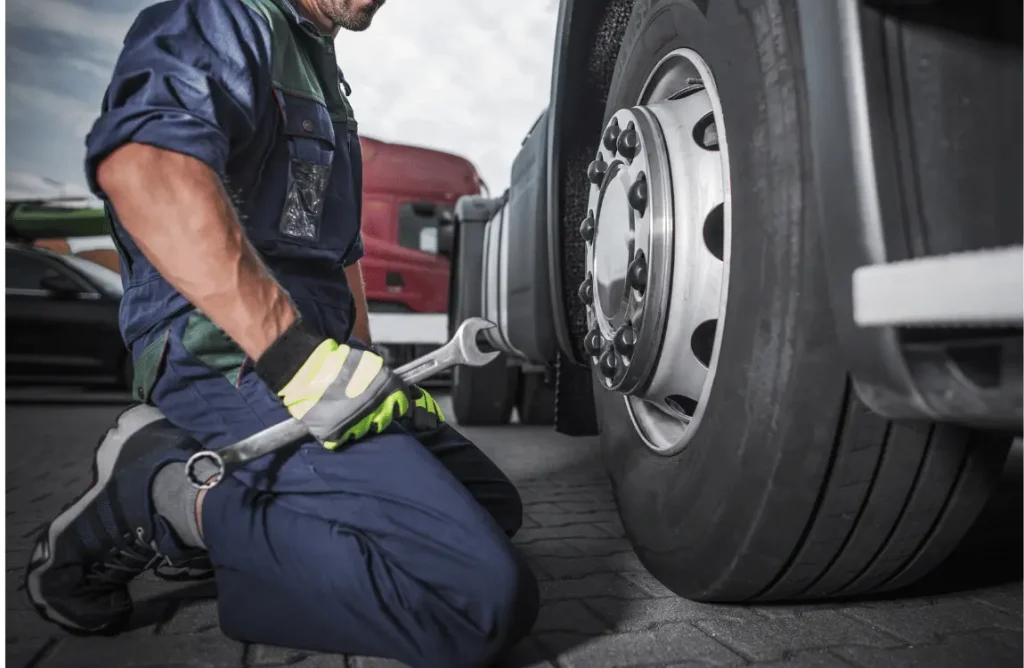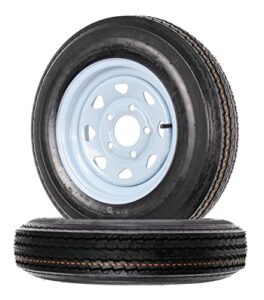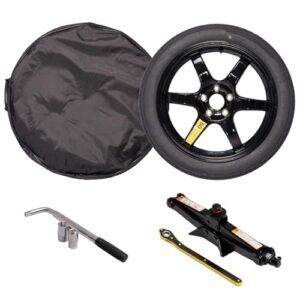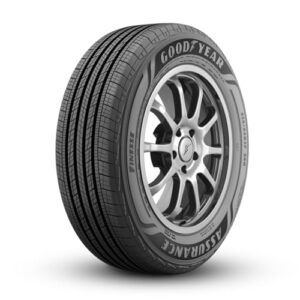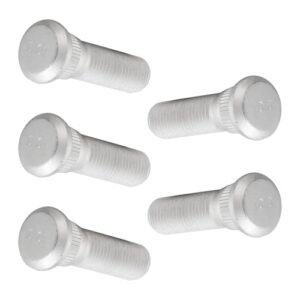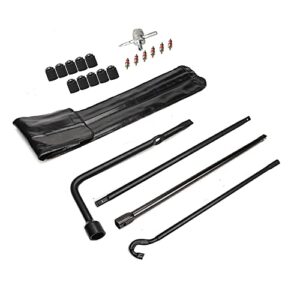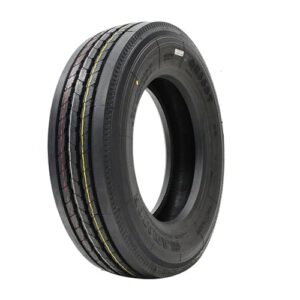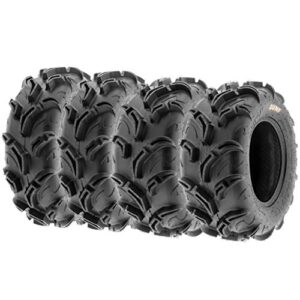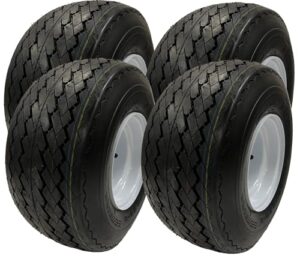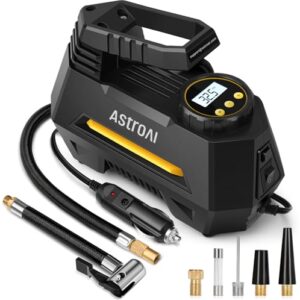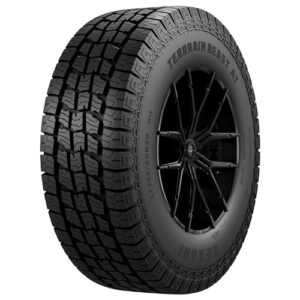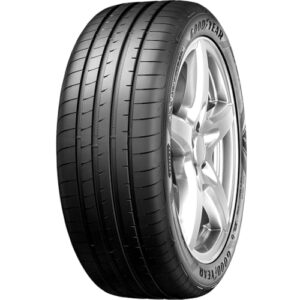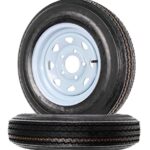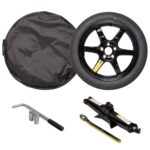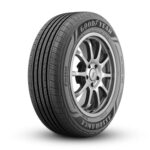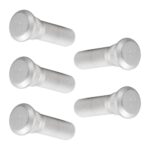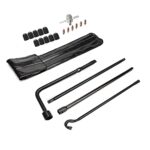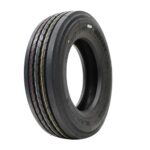Tires squeal when turning due to loss of traction or rapid steering movements. Worn tread or incorrect tire pressure often cause this issue.
Tires are your vehicle’s only contact with the road, and they play a crucial role in safe driving dynamics. When your tires emit a squealing sound as you turn, it’s a red flag that shouldn’t be ignored. This auditory warning can indicate several potential issues, from simple fixes like underinflation to more complex problems such as alignment or suspension defects.
Ensuring your tires are in top condition is vital for maintaining vehicle control and safety. Regular checks for proper inflation, balanced wear, and adequate tread depth are essential steps in preventing the alarming squeal and ensuring a quiet, smooth turn every time. Trust your ears: if your tires are singing the wrong tune, it’s time for a check-up.
Common Causes Of Tire Squeal
Tire squeal during turns often stems from underinflated tires or worn tread. Aggressive driving can also lead to noisy cornering, as it puts extra stress on tire edges.
Turning the corner and hearing the familiar screech of tires can be unnerving, leaving many drivers wondering about the squeal’s origin. Addressing this question requires exploring the typical culprits responsible for the noise, which range from everyday driving scenarios to potential mechanical concerns.
Incorrect Tire Pressure
One common factor leading to tire squealing is improper tire inflation. Tires inflated to the wrong pressure might lose traction:
- Under-inflation: Low tire pressure increases the tire’s surface area in contact with the road, which can lead to the sidewalls flexing more than they should and causing a squeal.
- Over-inflation: Conversely, too much air pressure can lead to less tire surface touching the road, which can cause the tires to skid and squeal, especially during turns.
Worn Tread Or Poor Tire Condition
A visual and physical inspection can often reveal if the tires are the squeaking culprits due to wear and tear:
Tread depth plays a vital role in maintaining a car’s grip on the road. Shallow treads can’t hold the road well, especially when cornering, resulting in a squealing sound. Additionally, aging tires might harden, losing elasticity and therefore grip, causing a squealing noise during turns.
Misaligned Wheels
When wheels are out of alignment, tires may squeal due to uneven road contact:
- Uneven wear: This can cause one tire to contact the road differently than the others, leading to a squeal when turning as the alignment issues put more strain on the tire edges.
- Steering response: Misalignment can lead to a delayed steering response, which might cause the driver to turn the wheel further, inducing tire squeal due to the sharp angle and uneven tire pressure distribution.
Driving Habits
Of course, a driver’s habits behind the wheel can lead to the tires protesting with a squeal:
Engaging in aggressive driving, such as speeding into turns or sharp cornering, can push tires beyond their grip limits. When the demand for tires surpasses their ability to stick to the road surface, a squealing sound can emanate as a result of the sideways slipping of the rubber on the asphalt.
Deteriorated Suspension Components
Lastly, the integrity of suspension parts can influence tire noise:
Neglecting vehicle suspension maintenance can result in parts like bushings, shock absorbers, and struts wearing out. As these components degrade, they can’t hold the tire firmly against the road during turns, which can lead to tire squeal as the stability of the tire is compromised.
Recognizing these common causes of tire squeal not only soothes a driver’s mind but also equips them with the knowledge to confront the issue. Whether it is regular maintenance or adjusting one’s driving style, understanding why your tires are vocal can be the first step to a quieter, more efficient ride.

The Role Of Tire Pressure In Squealing
Tire pressure significantly influences the grip and noise your tires produce during sharp turns. Under-inflated tires may cause a noticeable squealing sound due to increased friction and heat, highlighting the correlation between proper inflation and smooth, silent maneuvers.
Tire pressure is a paramount aspect of vehicle maintenance that often goes unnoticed until an unusual noise catches your attention during a turn. Squealing tires could be a red flag, signaling that your tire pressure is not within the recommended boundaries set by your vehicle’s manufacturer.
Here’s how tire pressure can lead to that annoying screech:
Proper Inflation And Squealing Reduction
- Incorrect Pressure Leading to Deformation: Tires inflated above or below the optimal range can deform. Underinflated tires have more tire surfaces touching the road, increasing friction and the squealing noise when turning.
- Overinflation Compromises Grip: Overinflated tires reduce the amount of tire in contact with the road. Less grip can cause tires to slip and squeal during sharp turns or maneuvers.
- Wear Patterns Affect Traction: Improperly inflated tires wear unevenly. This uneven wear can contribute to reduced traction, which might cause tires to squeal when turning as the tire struggles to maintain grip.
Ensuring that your tires are correctly inflated not only helps provide a quiet and smooth ride but also extends the life of your tires and improves fuel efficiency. Take a few minutes every month to check your tire pressure against the manufacturer’s recommendations, usually found in the owner’s manual or on a sticker inside the driver’s door.
It could save you from the stress of unexpected squeals and a whole host of other tire-related troubles.
Impact Of Road Conditions On Tire Noise
Poor road surfaces can amplify tire noise as uneven textures increase friction. Squealing tires during turns often indicate worn treads or incorrect tire pressure, especially on rough roads.
High-pitched squealing sounds from tires can catch any driver’s attention, suggesting there might be something amiss with their vehicle. While this sound could be related to a variety of issues, it’s quite informative to delve into how road conditions specifically play a role in the production of tire noise.
Wet And Slippery Surfaces
Slick roads are common culprits for why tires might emit a squeal during a turn. Here’s a closer look at this phenomenon:
- Surface water reduces friction: When there’s water on the road, your tires struggle to maintain their grip, which can lead to a slipping sound as the rubber meets water.
- Hydroplaning risk: At higher speeds, tires may glide on the water’s surface, causing a loss of traction that results in a squealing noise as the driver attempts to regain control during a turn.
Uneven Pavements And Potholes
It’s not just slippery conditions that lead to noisy tires; uneven roadways can be just as guilty:
- Irregular road textures: As tires traverse over uneven pavements, the varying levels can cause one part of the tire to lose contact and then suddenly grip the road surface, creating a squeal.
- Impact of potholes: Driving over potholes can temporarily deform the tire shape, and when it snaps back to its original form, a squealing sound may occur, especially when turning and the tire’s sidewall flexes more than usual.
Road Debris And Small Obstacles
Sometimes, the things scattered on the road are what make your tires protest the most during a sharp turn:
- Gravel and stones: Small, loose particles like gravel can get caught between the tire tread, leading to a chorus of high-pitched sounds as the tires try to dislodge these intruders while turning.
- Temporary fixes and patches: Quick road repairs often use materials that differ in texture from the surrounding pavement, which can prompt your tires to respond with a squeal when rolling over them during a turn.
Understanding the impact of road conditions on tire noise not only reassures drivers but also reinforces the importance of driving adjusted to current road situations. Knowing what each squeal might mean is invaluable for maintaining vehicle health and ensuring safety on the road.
Worn Tires And Squealing: A Direct Correlation
Experiencing tires squealing on turns often signals worn tread or improper inflation. It’s a common indicator that your vehicle’s tires may need attention to ensure safety and optimal performance.
Have you ever been taken aback by that unsettling squealing noise as your car takes a sharp turn? It’s not just a nuisance; it could be a red flag waving at you from your tires, signaling that they might be crying out for attention.
Let’s delve into why aged or worn tires tend to become your personal car choir, hitting those high notes every time you turn the wheel.
Signs Of Worn Tires
The connection between worn tires and squealing can be explained by several tell-tale signs:
- Tread Depth: Shallower tire treads struggle to grip the road, especially in corners. This loss of traction can lead to that infamous squeal as the tire slips on the pavement.
- Hardening of Rubber: As tires age, the rubber becomes hard and less pliable, making it more prone to slipping instead of rolling smoothly, which can cause a squealing sound.
- Uneven Wear: Tires that have worn down unevenly can create an imbalance in traction across the tire’s surface, amplifying the risk of squealing when making turns.
The Impact Of Worn Tires On Driving Safety
Driving on tires that have outlived their tread can be downright dangerous. Not only does the risk of squealing increase but so does the potential for other hazardous scenarios:
- Compromised Handling: As tires grow thin, so does your car’s ability to handle twists and curves with ease. This can make for a driving experience that feels less controlled and more unpredictable.
- Heightened Risk of Hydroplaning: Low tread depth diminishes the tire’s ability to channel water effectively, increasing your chances of losing control during wet conditions.
- Longer Braking Distances: Worn treads affect braking significantly. In a situation where every inch counts, you want to ensure your tires aren’t impairing your ability to stop swiftly.
A squeal is more than just an annoyance—it’s a safety hazard. Treat your tires with care and regard these noises as cues to take action. Checking tire treads regularly, rotating them to promote even wear, and replacing them when necessary can help keep your vehicle harmonious, responsive, and, most importantly, safe on the road.
Steering System And Suspension: Key Contributors To Tire Noise
Tire squeal during turns often stems from issues within the steering system and suspension. Faulty components can lead to uneven tire pressure and increased friction, causing that recognizable high-pitched noise. Regular maintenance of these systems is crucial for a quieter, smoother ride.
Encountering a screeching sound from your tires when navigating a turn can be disconcerting and might signal an underlying issue with your vehicle’s steering system and suspension. Let’s delve into how these components play a pivotal role in the noises you may hear during a turn.
Steering System Complications
A car’s steering system is intricate, with various parts that can wear out or become misaligned, leading to audible complaints from your vehicle:
- Power steering fluid level: A deficit in this essential liquid can cause the steering pump to groan or whine.
- Steering belt wear: Belts in poor condition can slip, producing a squealing sound when the wheel is turned.
- Worn-out steering rack: When the rack, which facilitates wheel movement, degrades, it may squeak during maneuvering.
Suspension Issues
We often underestimate the complexity of our vehicle’s suspension system, yet it’s crucial in ensuring a smooth ride and keeping those tire squeals at bay:
The role of suspension components is substantial in maintaining tire and road harmony. When parts like shocks and struts are past their prime, the tire grip falters, and noise ensues. Signs your suspension may need attention include:
- Deteriorated shock absorbers or struts: Loss of stability and increased bounce post-bumps could lead to squeals during turns.
- Worn bushings or ball joints: These components buffer and pivot; if they’re compromised, they can generate noise under the strain of a turn.
- Incorrect wheel alignment: This causes uneven tire wear, which can result in unusual tire noise when the steering wheel is turned.
Tending to steer and suspension woes not only curbs the irritation of squealing tires but also ensures your driving experience remains both safe and serene. Keep your ears open to what your car might be telling you—it’s often the first line of defense in vehicular care.
Diagnosing Tire Squeal: When To Visit A Mechanic
Tire squeal during turns can signal improper alignment or worn tread. An expert mechanic should assess the issue to prevent further damage and ensure safe driving.
Ever find yourself questioning that sharp squeal echoing from your tires as you take a turn? It’s not just an annoyance; it’s a possible signal that something’s amiss with your vehicle. Identifying the cause is crucial, and while some might be simple fixes, others demand a seasoned mechanic’s eye.
Let’s walk through the scenarios where prompt professional intervention is the wise move.
Telltale Signs Of Serious Tire Squeal
Before diving into specifics, let’s look at some telltale signs that your tire squeal isn’t just a hiccup:
- Persistent squealing: If the squealing isn’t a one-off but persists every time you turn, this repetition is a red flag.
- Increased volume: A squeal that grows louder over time suggests the issue is escalating, not improving.
- Handling feels off: A change in how your car handles, such as pulling to one side during turns, is cause for concern.
Situations That Warrant A Mechanic’s Expertise
Understanding when to seek a professional is key to maintaining the health of your vehicle. Opt for a mechanic’s expertise in the following instances:
- Tread wear is uneven: Uneven wear on tire treads is indicative of alignment or suspension problems that a mechanic should address.
- Squealing persists after pressure adjustment: If correcting tire pressure doesn’t silence the squeal, there’s likely a deeper issue at work.
Squeal-induced Issues That Are Mechanic Territory
Certain conditions that lead to tire squeal should be left to a professional to diagnose and fix. Here they are:
- Worn tire components: Components such as the tread, belts, or sidewalls could be excessively worn and in need of expert eyes.
- Underlying brake problems: Brakes are crucial; squeals stemming from brake issues like worn pads or rotors are a mechanic’s job.
Regular Maintenance: Prevention Is Better Than Cure
Routine checks can go a long way in preventing tire squeals and the resulting trips to the mechanic. Here’s what to keep an eye on:
- Tire pressure: Ensure your tires are always inflated to the manufacturer’s recommended levels.
- Alignment is key: Regularly check your alignment to thwart uneven wear and potential squeals.
Whether it’s just a peep or an ongoing wail, tire squeals are your vehicle’s way of clamoring for attention. Some instances, especially those that make themselves known through persistent or worsening noise or feelings of unbalance in the vehicle’s handling, should have you steering straight into a mechanic’s workshop.
Remember, the health of your car rests upon the rubber meets the road; don’t take tire complaints lightly.
Preventive Measures And Regular Maintenance
Tire squealing during turns often signals the need for preventive care and scheduled servicing. Proactive inspections of tire pressure, alignment, and tread depth can mitigate unpleasant noises and ensure safe, smooth handling on the road.
Preventive Measures To Ward Off Tire Squeal
Tire squeals around corners can be unsettling, but with regular upkeep, you can keep your tires singing in tune rather than screeching out of key. Adhering to these guidelines will not only improve your vehicle’s performance but can also enhance your safety on the road.
Regular Tire Inspection
The first step to ensuring your tires stay quiet and reliable starts with routine visual checks:
- Tread depth check: Use a tread depth gauge to measure your tire’s tread. Proper tread helps maintain traction and prevents sliding, which can cause squealing.
- Surface examination: Regularly inspect the tire surfaces for any signs of uneven wear, bulges, or other damages that might indicate an issue with alignment or suspension.
- Tire pressure monitoring: Correct tire pressure is crucial for optimal contact with the road. Consistently keep them inflated to the manufacturer’s recommended levels.
Maintenance Schedule Adherence
Staying on top of your vehicle maintenance is crucial:
- Alignment checks: Ensure your vehicle’s wheels are properly aligned. Misalignment can lead to uneven wear on tires, causing them to squeal during turns.
- Suspension system servicing: A well-maintained suspension system can absorb shocks better and keep your tires firmly on the road.
- Regular rotations: Tire rotations can equalize wear and tear across all tires, minimizing the chance of noise due to uneven surfaces.
Remember, embracing these preventive steps not only combats tire noise but contributes to a smoother, safer drive and longer tire life. Keep your ear to the ground and your tires turning silently with these maintenance must-dos.
Choosing The Right Tires To Prevent Squealing
Tire squealing during turns often signals incorrect tire selection. Opting for tires with appropriate grip and design can significantly reduce this issue, ensuring a quieter, safer driving experience.
When your car’s tires squeal during a turn, it’s not just an alarming noise; it’s a signal that something may not be right with your vehicle. While several factors can contribute to this, selecting the proper tires is a crucial step toward minimizing unnecessary noise and ensuring a safe, comfortable ride.
Understanding Tire Composition And Tread Design
Choosing the right tires for your vehicle involves understanding the key components, such as the rubber compound and tread design that impact performance:
- Rubber Compound: The rubber in tires should be soft enough to provide good traction yet hard enough to last. A softer compound will grip the road better but may also be more prone to squealing because it can flex more.
- Tread Design: Tire treads are designed to channel water away and maintain road contact. A performance tire with a unique tread design may reduce squealing as it can offer better lateral stability during sharp turns.
Tire Maintenance And Squeal Prevention
Regular maintenance of your tires is essential in preventing that unnerving squeal:
Tire Pressure: Keeping tires properly inflated helps maintain their shape and grip on the road. Incorrect tire pressure can cause the tire to deform and lead to noise when turning.
Alignment: Regular wheel alignments ensure that tires are positioned correctly. Misalignment can result in uneven tire wear, leading to squealing during turns.
Rotation: Rotating your tires as recommended by the manufacturer or your mechanic aids in even wear, which can also help reduce noise.
It’s vital to be proactive in selecting the right tires and maintaining them properly. Not only will this keep your car handling well, but it will also keep your journeys peaceful and squeal-free. Remember, the key to a quiet turn is as much in the care you provide as in the tires you choose.
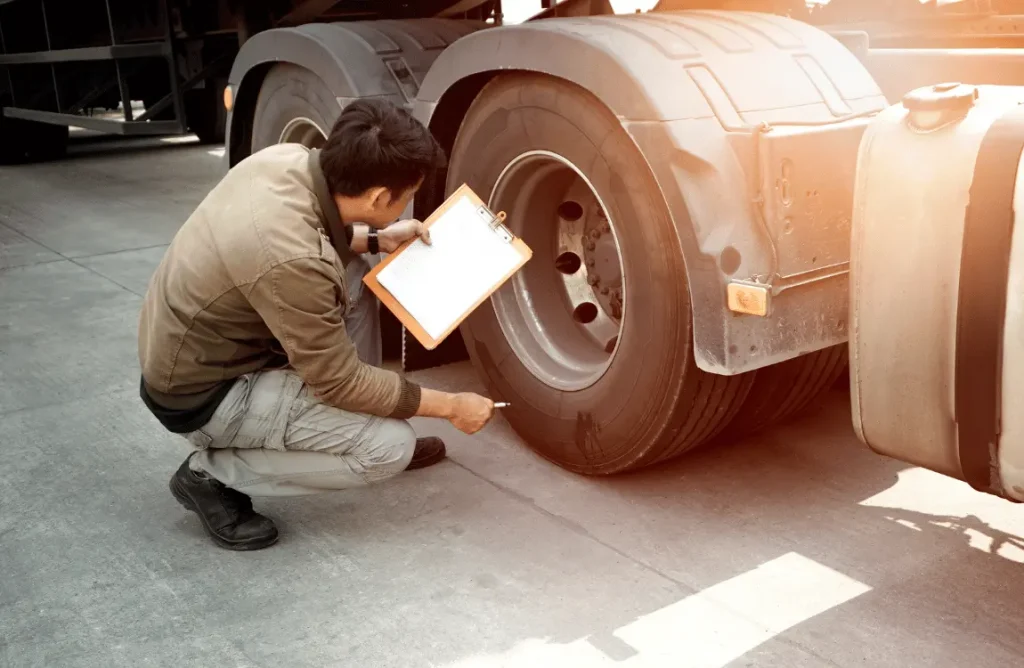
Frequently Asked Questions
Why Do Tires Squeal During Sharp Turns?
Tire squealing when taking sharp turns is often the result of the lateral force causing the tire to lose grip, which leads to the rubber slipping against the road surface.
Can Tire Pressure Affect Turning Noise?
Incorrect tire pressure can cause uneven tire wear, which may lead to increased noise when making turns as the tires may not contact the road properly.
What Causes Squealing Noises In New Tires?
New tires may squeal due to the presence of release agents used in the manufacturing process or because the tread has not yet been broken in, leading to reduced traction.
Conclusion
Squealing tires during turns can signal underlying issues. It’s important to address these for safety and performance. Simple checks and timely maintenance can prevent the noise and safeguard your vehicle. Remember, quiet tires mean a smoother ride and peace of mind on the road.


